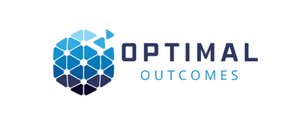Tel: 650-980-4870
Blog

Accidents will happen
Humans can accidentally share sensitive company data in various ways, often due to human error or lack of awareness. These mistakes can lead to significant cybersecurity risks for the organization. Here are some common scenarios:
Email Mistakes: Employees may send sensitive information to the wrong recipients or use personal email accounts for work-related matters, inadvertently exposing confidential data.
Phishing Attacks: Cybercriminals use social engineering techniques to trick employees into revealing sensitive information, such as login credentials or company data, by clicking on malicious links or attachments.
Weak Passwords: Employees may use weak or easily guessable passwords, making it easier for attackers to gain unauthorized access to sensitive systems and data.
Lost or Stolen Devices: Employees may lose laptops, smartphones, or USB drives containing sensitive data, potentially providing unauthorized access to valuable information.
Unauthorized Cloud Storage: Employees might use personal cloud storage accounts (e.g., Dropbox, Google Drive) to store company data, which can be vulnerable to breaches.
Social Media Oversharing: Employees may unintentionally post sensitive company information or reveal personal details that hackers can use for social engineering attacks.
Misconfiguration of Security Settings: Improperly configured security settings on software applications, databases, or cloud services can inadvertently expose sensitive data to the public or unauthorized users.
Insider Threats: Employees with malicious intent may intentionally leak sensitive data or engage in other harmful activities that jeopardize the company's cybersecurity.
Public Wi-Fi Usage: Accessing company systems or data through unsecured public Wi-Fi networks can expose sensitive information to potential attackers.
Unintended File Sharing: Accidentally sharing sensitive documents through file-sharing services or collaboration platforms without proper access controls can lead to data leakage.
To mitigate these risks, organizations should implement robust cybersecurity measures and focus on educating employees about the importance of data protection. This includes:
Providing cybersecurity training and awareness programs to employees.
Implementing multi-factor authentication (MFA) for added security.
Encouraging the use of strong, unique passwords for all accounts.
Encrypting sensitive data to protect it from unauthorized access.
Monitoring and logging access to critical systems and data.
Implementing data loss prevention (DLP) solutions to prevent accidental data leaks.
Regularly updating and patching software to address security vulnerabilities.
Enforcing security policies and conducting periodic security audits.
Ultimately, fostering a culture of cybersecurity awareness and vigilance among employees is essential in minimizing accidental data exposure and protecting sensitive company information.
Menu
Services
© Copyright 2023. Optimal Outcomes. All rights reserved.
